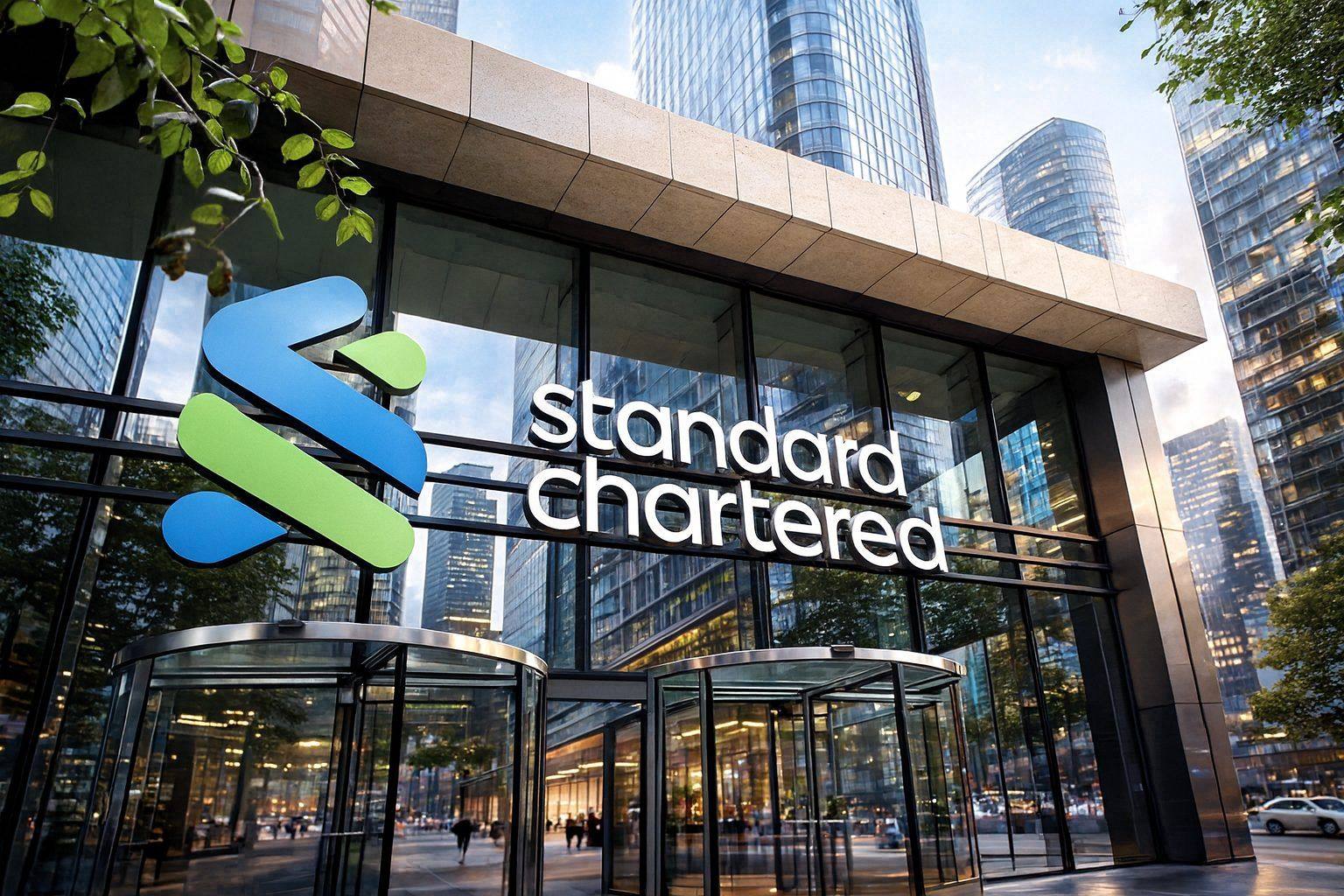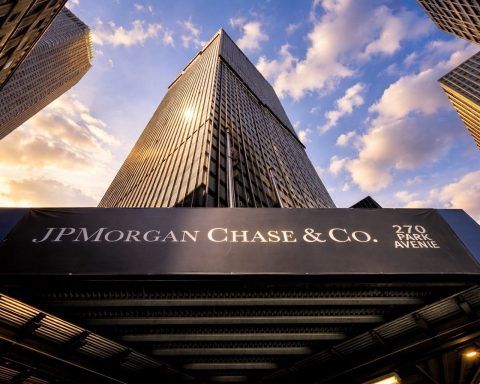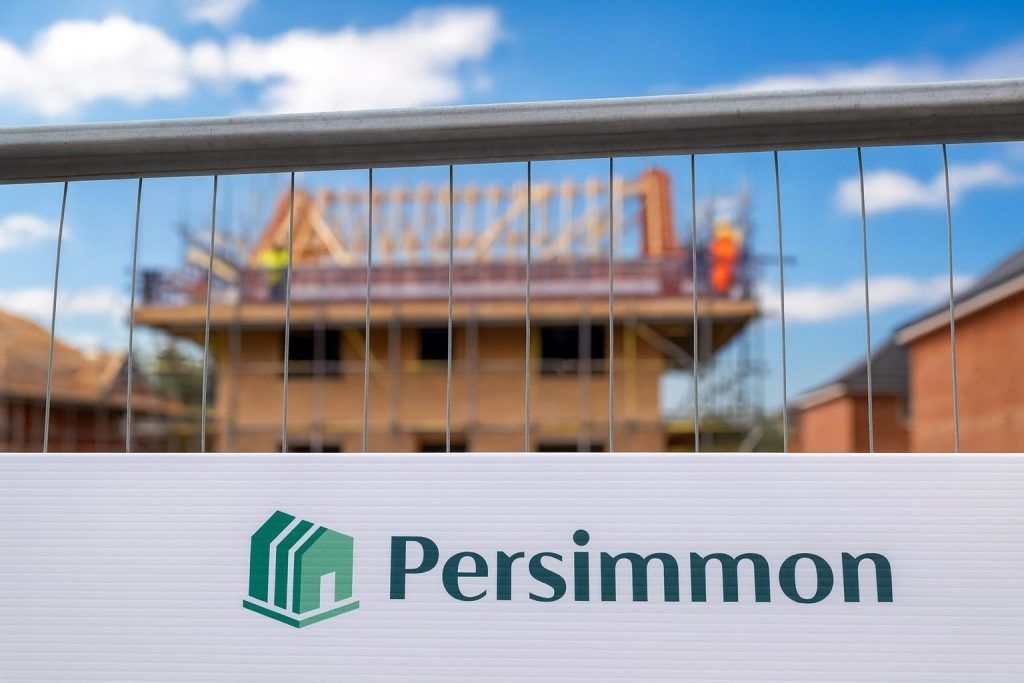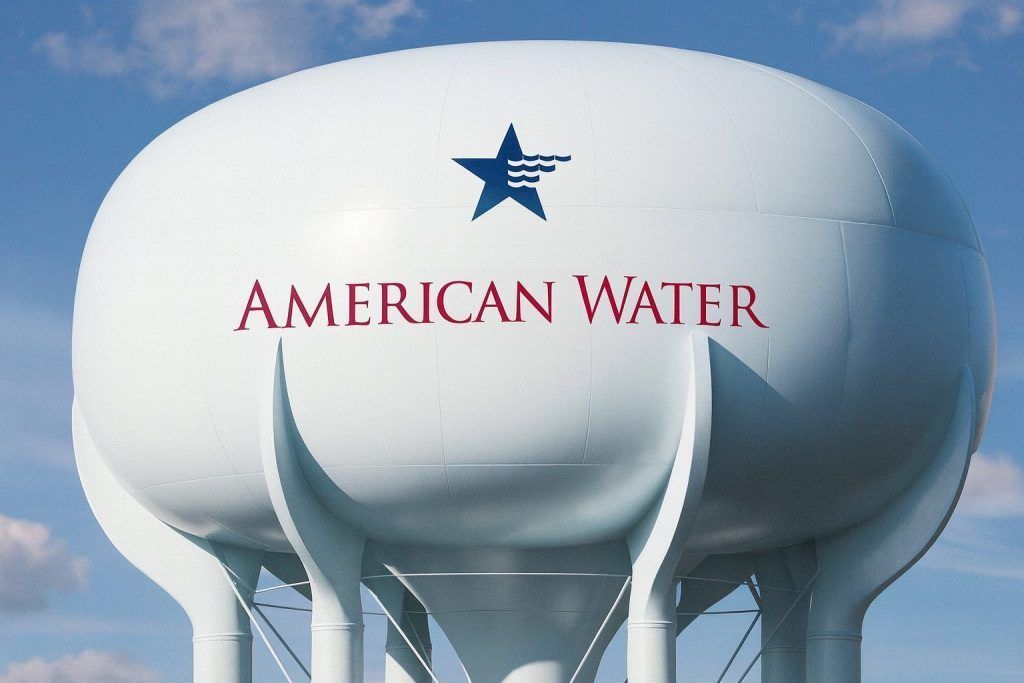Standard Chartered PLC (LON: STAN) is firmly in the spotlight on Wednesday, 26 November 2025, as investors digest a new chunk of share buybacks, a flagship crypto‑custody mandate with 21Shares, fresh research on digital trade, mixed subsidiary earnings from Kenya, and growing legal and macro risks – all against the backdrop of a stock that has just broken above its 200‑day moving average. Reuters+5MarketBeat+5American Banking News…
Below, we break down the key developments shaping the investment narrative around Standard Chartered (STAN) today.
STAN share price today: Above the 200‑day moving average
As of this morning, Standard Chartered shares were trading around GBX 1,627.5, up roughly 1.7% on the day, according to MarketBeat’s real‑time London listing page. MarketBeat
Fresh technical coverage from American Market News notes that the stock crossed above its 200‑day moving average on Tuesday, with that long‑term trend line sitting near 1,355.5p and the shares trading as high as 1,621p intraday. American Banking News
At these levels, Standard Chartered carries a market capitalisation of roughly £36.5 billion and trades on about 8.4x trailing earnings, with a price‑to‑earnings‑growth (PEG) ratio of 0.80 and a beta of 0.85, signalling relatively moderate volatility compared with the broader market. American Banking News MarketBeat data also shows a consensus “Hold” rating and an average target price near 1,316p, implying the stock is currently trading above where many analysts see fair value. American Banking News
For technically minded traders, the move above the 200‑day moving average will be read as a bullish momentum signal, but the valuation and headline risks (see below) keep the fundamental picture more nuanced.
Fresh share buyback: 475,222 shares repurchased
Standard Chartered continued returning capital to shareholders with another share buyback announcement today.
In a regulatory filing dated 26 November 2025, the bank disclosed that on 25 November 2025 it repurchased 475,222 ordinary shares as part of the ongoing buyback programme first outlined on 31 July 2025. Investegate
Key details from the RNS notice: Investegate
- Aggregate shares purchased: 475,222
- Price range:
- Lowest price: 1,581.50p
- Highest price: 1,621.00p
- Volume‑weighted average price (VWAP):1,599.76p
- Total spent on the buyback to date:US$130,036,727.14
- Resulting ordinary shares in issue:2,275,407,756
Once cancelled, this latest batch of shares will reduce the share count by about 0.02%, a small but incremental boost to earnings per share as the programme progresses. The scale of the buyback relative to a ~£36bn market cap is modest, but it signals confidence in the bank’s capital position and future earnings capacity. Investegate+1
Crypto push: Standard Chartered named digital asset custodian for 21Shares
One of the most eye‑catching headlines today is Standard Chartered’s appointment as digital asset custodian for 21Shares, a leading issuer of crypto exchange‑traded products (ETPs). LeapRate+1
According to LeapRate and Asset Servicing Times: LeapRate+1
- 21Shares will initially use Standard Chartered’s new digital asset custody platform in Luxembourg, registered with the CSSF (the local financial regulator).
- The service targets institutional investors seeking secure, compliant storage of crypto assets underlying ETPs.
- Standard Chartered highlights its global risk management framework and cross‑border banking expertise as key differentiators in a still‑maturing digital asset infrastructure market.
This mandate builds on the bank’s existing digital‑asset footprint (including prior work around crypto research and tokenisation) and reinforces its strategy of being a “TradFi gateway” to digital assets. Commercially, it offers a growing, fee‑based revenue line; strategically, it positions Standard Chartered as a go‑to partner for institutions wanting regulated exposure to crypto.
UAE crowned global leader in digital trade by Standard Chartered report
Standard Chartered also released its latest Future of Trade: Digitisation report, which identifies the United Arab Emirates as the world’s most advanced market for digital trade readiness. TechAfrica News
Highlights from the report, as summarised by TechAfrica News: TechAfrica News
- The UAE tops the global rankings thanks to:
- Strong digital infrastructure
- A supportive regulatory environment
- Rapid corporate adoption of technologies transforming cross‑border trade
- A survey of 1,200 multinationals across 17 markets found:
- 97% of UAE corporates see cloud computing as essential – the highest global reading.
- 68% are already using tokenised instruments, digital settlement mechanisms and blockchain‑enabled trade solutions.
- 43% leverage AR/VR, and 36% have deployed AI in operations, customer engagement or supply chains.
- 96% support expanding Digital Economy Agreements to harmonise cross‑border digital trade frameworks.
For Standard Chartered, which is deeply embedded in the UAE and broader Middle East, this research is more than marketing. It helps the bank frame where to allocate balance sheet and technology investment in trade finance, payments and working‑capital solutions along digital trade corridors.
Kenya: Q3 2025 results show resilient franchise, but profit hit by one‑off cost
Standard Chartered’s Kenyan subsidiary, Standard Chartered Bank Kenya Limited, also published its Q3 2025 results today, revealing a sharp profit decline but a still‑solid balance sheet. MarketScreener
Key numbers from the MarketScreener‑hosted press release: MarketScreener+1
- Profit before tax: KSh 13.2bn, down 41% year‑on‑year.
- Operating income: down 17% YoY to KSh 32.4bn.
- Net interest income: −10% (volume and margin compression amid falling rates, partly offset by cheaper funding and higher income from government securities).
- Non‑interest income: −29%, mainly on lower transactional volumes and margins in Transaction Services and Markets, partially offset by growth in wealth solutions.
- Operating expenses: up 19%, driven largely by a KSh 2.7bn one‑off employee past‑service cost following a Supreme Court ruling and Retirement Benefits Appeal Tribunal orders.
- Loan impairment charges: down 11%, reflecting recoveries and a focus on asset quality.
- Asset quality: non‑performing loan ratio improved 150 bps to 5.9% versus December 2024.
- Liquidity ratio: a strong 66.6% (well above the 20% regulatory minimum).
- Total capital ratio:20.6%, comfortably above the local regulatory floor.
The Kenyan franchise remains well‑capitalised and highly liquid, but the combination of softer top‑line growth and one‑off staff costs has materially dented profitability for the period. For group‑level investors, this underscores the earnings volatility that can arise from legal, regulatory or pension‑related rulings in individual markets, even when underlying credit quality is improving.
Stablecoins and EM banks: South Africa validates Standard Chartered’s warning
On the macro side, South Africa’s central bank (SARB) has effectively validated a recent Standard Chartered research warning about the disruptive impact of USD‑pegged stablecoins on emerging‑market banking systems. BeInCrypto
A BeInCrypto report today explains that: BeInCrypto
- Standard Chartered’s digital asset research team projects up to US$1 trillion of emerging‑market bank deposits could migrate into stablecoins over the next three years as households and corporates shift into digital dollars.
- The bank’s analysts highlighted 48 countries along a spectrum of opportunity and vulnerability, with Egypt, Pakistan, Bangladesh and Sri Lanka singled out as particularly exposed to deposit outflows.
- SARB’s 2025 Financial Stability Review finds that South African stablecoin trading volumes have surged from 4 billion rand in 2022 to nearly 80 billion rand (about US$4.6bn) by October 2025, and flags the risk that crypto assets could circumvent exchange controls and undermine financial stability.
For Standard Chartered, which operates across many of the vulnerable markets identified, this is a double‑edged sword:
- On one side, it strengthens the bank’s role as a thought leader and potential advisor to regulators and clients on digital‑asset risks and policy.
- On the other, it highlights structural pressures on local deposit bases in some of its core territories if stablecoins keep gaining traction.
Middle East awards: Best DCM and M&A house
Adding to the positive headlines, FinanceAsia’s Achievement Awards 2025 have named Standard Chartered Bank both “Best DCM (Debt Capital Markets) House” and “Best M&A House” in the Middle East, alongside roles on several landmark deals. FinanceAsia
According to FinanceAsia’s announcement: FinanceAsia
- The bank was a participant in debt funding for the Oman‑UAE Railway Network project, which was recognised as Best Infrastructure & Project Finance Deal.
- Standard Chartered also featured among the arrangers of the Public Investment Fund’s US$7bn medium‑term financing, which won Best Islamic Finance Deal and involved multiple regional and global institutions.
- On the M&A side, it advised on Tabreed and CVC DIF’s acquisition of PAL Cooling Holding from Multiply Group, named Best M&A Deal in the region.
- At the house level, Standard Chartered took home Best DCM House and Best M&A House for the Middle East.
These awards reinforce the bank’s deal‑making and advisory credentials in one of its fastest‑growing regions and suggest a healthy pipeline of fee‑based revenue, especially across infrastructure, energy transition and Islamic finance.
Risk.net honours: Credit portfolio manager of the year
In global risk management, Risk.net’s Risk Awards 2026 have named Standard Chartered “Credit portfolio manager of the year”, recognising the sophistication of its synthetic risk transfer and balance sheet optimisation efforts. Risk.net
Risk.net highlights several initiatives: Risk.net
- Shangren VII – a synthetic risk transfer referencing a portfolio of trade finance exposures that delivered regulatory capital relief in both London and Singapore through a single structure, marking a first of its kind in Singapore.
- Symphony – an internal project that has re‑thought how the bank uses its three main hubs (UK, Hong Kong, Singapore) to rebook around US$10bn of assets onto balance sheets where funding is more abundant, freeing up capital and improving returns.
- Dawn committed liquidity programme – a set of pre‑arranged client structures designed to provide contingent liquidity in stress scenarios without unduly inflating the balance sheet in normal conditions.
This recognition underscores an important – if less visible – part of the investment story: Standard Chartered is actively using structured credit and portfolio tools to squeeze more earnings and resilience out of a finite capital base, which matters when regulatory and legal risks (like 1MDB) are in play.
AI execution: From experimentation to disciplined scale
Another strategic thread is Standard Chartered’s enterprise AI programme, which is moving into a more disciplined, industrialised phase.
An in‑depth article from The Asian Banker published yesterday describes how the bank is: The Asian Banker+1
- Scaling AI use cases across 41 markets, focusing on areas with clear business impact: credit operations, financial crime, operational efficiency and front‑office insights.
- Adopting a “federated” operating model, where central teams provide common data, platforms and controls, and business units build use cases on top – aiming for speed without fragmented governance.
- Tightening governance, measurement and risk controls so each model must withstand scrutiny before moving into production, reflecting the bank’s emphasis on trust and regulatory compliance.
For investors, this speaks to Standard Chartered’s medium‑term ambition: raise productivity and risk control using AI while avoiding the reputational or regulatory blowback that poorly governed models can create.
Nigeria and capital strength in Africa
Although not a headline from today, November news from Nigeria provides context for the group’s capital and emerging‑market footprint.
Standard Chartered Bank Nigeria Limited announced earlier this month that it has met the Central Bank of Nigeria’s ₦200bn minimum capital requirement for national commercial banks well ahead of the March 2026 deadline, underscoring its long‑term commitment to the country. The Guardian Nigeria+1
Local coverage notes that the early compliance signals confidence in Nigeria’s economic potential and in the bank’s ability to support key sectors of the economy with a strong capital base. The Guardian Nigeria+1
Given Nigeria’s importance in Standard Chartered’s African network, this early recapitalisation helps reassure investors that the group is proactively de‑risking regulatory capital constraints in a core market.
Private banking leadership moves in Greater China and North Asia
In wealth management, Standard Chartered has announced leadership changes in its private banking division for Greater China and North Asia. Hubbis+2finews.asia+2
According to Hubbis and other regional outlets: Hubbis+2finews.asia+2
- Muska Chiu has been promoted to Team Lead, drawing on more than 20 years of investment and product advisory experience, particularly with ultra‑high‑net‑worth (UHNW) clients.
- Peter Horng has joined the bank as Head of Investment Advisory and Product Advisory, Private Banking, Greater China and North Asia, bringing over 25 years of wealth management experience from roles at Citibank, HSBC, UBS and DBS.
These moves reinforce Standard Chartered’s focus on UHNW and affluent clients in Asia – a segment that remains highly competitive but fee‑rich, especially when combined with the bank’s cross‑border capabilities.
Key overhang: Singapore court clears way for US$2.7bn 1MDB‑linked lawsuit
Balancing today’s positive news, a major legal overhang remains in the form of a US$2.7bn lawsuit linked to Malaysia’s 1MDB scandal.
On 25 November 2025, Reuters reported that the Singapore High Court dismissed Standard Chartered’s application to strike out a suit by liquidators seeking to recover misappropriated 1MDB funds, allowing the case to proceed. Reuters
Key points from the report: Reuters
- Liquidators allege that Standard Chartered “enabled acts of fraud” by permitting over 100 intrabank transfers between 2009 and 2013 that helped conceal flows of stolen money.
- The alleged losses tied to transactions routed via Standard Chartered accounts exceed US$2.7bn, including transfers to accounts linked to former Malaysian Prime Minister Najib Razak.
- Standard Chartered strongly disputes the claims, describing them as “without merit” and noting that the entities involved were “shell companies that misappropriated funds from 1MDB” whose activities it reported before closing their accounts in early 2013. The bank says it takes its financial‑crime responsibilities “extremely seriously.”
The outcome of this case is highly uncertain and could take years to resolve. For now, it represents a material tail risk – not just financially, but reputationally – that investors will need to weigh against the bank’s otherwise improving capital‑return and strategic narrative.
Sentiment wrap: What today’s news means for STAN investors
Putting all of this together, today’s flow of news around Standard Chartered (STAN) paints a mixed but broadly constructive picture, tempered by a serious legal cloud.
Supportive factors
- Capital return: The ongoing buyback, now over US$130m in aggregate, shows management is comfortable returning capital while funding growth and regulatory requirements. Investegate
- Digital and crypto strategy: The 21Shares custody mandate and the UAE digital‑trade report underline Standard Chartered’s intention to sit at the intersection of traditional finance, digital assets and cross‑border trade, with potential for high‑margin fee income. LeapRate+1
- Risk and balance‑sheet discipline: Recognition from Risk.net for its credit portfolio management and liquidity planning suggests the bank is actively managing capital and funding constraints, not just living with them. Risk.net
- Regional strength: Awards in the Middle East, early recapitalisation in Nigeria and growth in wealth management in Asia all point to a franchise that is deepening in key high‑growth markets. finews.asia+4FinanceAsia+4The Guardian Nig…
- Technology and AI: The shift from AI experimentation to disciplined, governed execution raises the prospect of structurally lower costs and better risk controls over time. The Asian Banker+1
Risks and watchpoints
- 1MDB litigation: The US$2.7bn Singapore suit is the single biggest near‑term risk factor and may cap valuation multiples until there is more clarity. Reuters
- Emerging‑market macro & digital disruption: Standard Chartered is heavily exposed to EM markets that could see deposit erosion from stablecoins and face political, legal or regulatory shocks, as seen in Kenya’s one‑off pension cost and SARB’s latest warnings. MarketScreener+1
- Valuation vs consensus: With STAN trading above the current average analyst target and well above its 200‑day moving average, much of the good news may already be in the price, leaving less room for error on litigation or macro data. American Banking News+1
For readers tracking Standard Chartered for investment purposes, none of this is a simple “buy or sell” signal. Instead, today’s developments sharpen the key questions:
- Can the bank grow fee‑rich businesses in trade, digital assets and Middle Eastern capital markets fast enough to offset EM volatility and legal noise?
- Will its advanced risk management and AI‑driven efficiency translate into structurally higher returns on tangible equity?
- And how will the market re‑rate the stock if – or when – the 1MDB overhang is resolved?
Important disclaimer
This article is for information and news purposes only and does not constitute investment advice, stock recommendations or a solicitation to buy or sell any security. Markets can move quickly and unpredictably; readers should conduct their own research and, where appropriate, consult a qualified financial adviser before making investment decisions.









